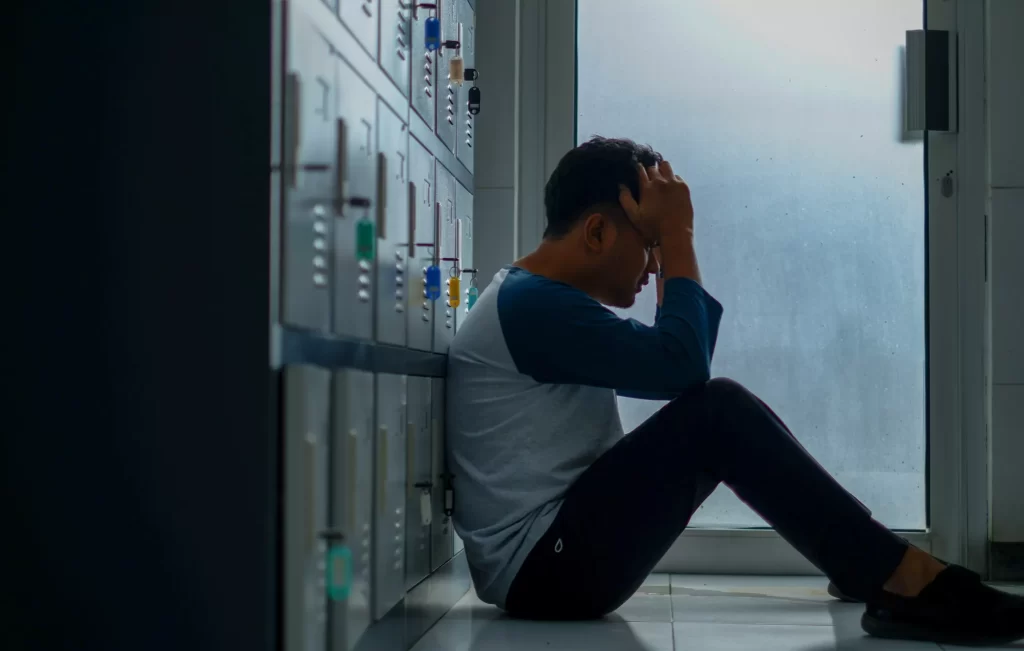When you look closely at the prevalence of mental health conditions like PTSD, depression, and others, the statistics are sobering. Suicide has become a leading cause of death in the United States, responsible for about one death every 11 minutes in 2019. For so many individuals facing the painful reality of living with an untreated mental health condition – or one that has been ineffectively treated – the impact on their quality of life is unimaginable.
However, there are new options emerging in the fight to make high-quality treatment options more accessible than ever before. One such treatment is ketamine therapy, which has become an increasingly recommended treatment for individuals with PTSD, treatment-resistant depression, anxiety, and other conditions.
What is ketamine treatment?
Ketamine treatment is an IM (intramuscular) therapy that utilizes a medication called ketamine as a means of supporting positive changes in the brain. As a result, a significant number of patients experience a significant reduction in the symptoms of PTSD, depression, and other mental health conditions.
Does ketamine therapy really work?
One of the most common questions we receive is, “how effective is ketamine therapy?” There are a number of published studies that make positive connections between ketamine treatment and the improvement of symptoms of mental health conditions.
At Klarisana, we are extremely proud to have published patient success rates of over 85%. Many of our patients are individuals who have struggled in the past to find effective methods for managing their mental wellness but reported life-changing results from ketamine therapy.
Is ketamine therapy safe?
Ketamine has been administered extensively in a wide range of healthcare settings since the 1960s, including operating rooms and emergency departments. It has an excellent track record for safety, largely due to its minimal impact on patients’ respiration.
At Klarisana, we utilize significantly lower doses of ketamine than would be used in a hospital environment. You will still be aware and able to speak during your treatment, and at no point will be “put under” the full anesthetic effects. Also, your vitals are closely monitored to detect any changes.
The majority of sessions are facilitated by physician’s assistants or nurse practitioners, all of whom have undergone extensive training.
Is ketamine therapy legal?
Yes. Ketamine is legal for use in therapeutic applications in the U.S. (and some other countries), specifically by registered practitioners like the ones at Klarisana.
In addition to being permitted for use as an anesthetic, its “off-label” use as a treatment for mental health conditions is also completely legal, so long as it is administered by licensed clinicians.
What does “off-label” mean?
Since the 1970s, ketamine has been FDA-approved for medical use as an anesthetic. Recently, a specific form of ketamine also received approval for treatment-resistant depression in adults.
“Off-label” means that there are other ways in which medicine (like ketamine) can be used to treat certain conditions, beyond its original intent. Although this term leads to hesitation for some patients, understanding its true meaning can be extremely reassuring. When a medication is developed for medical use, the FDA-approval process requires “on the label” uses to be extremely specific. In the case of ketamine, its original use was as a general anesthetic for certain types of surgery.
But as new uses for medication are discovered, because they were not included in the original process, they are categorized as “off-label.” Interestingly, studies show that as many as 1 in 5 prescriptions are prescribed for off-label use. Again, as long as a licensed practitioner is issuing the prescription, this is completely legal.
Conditions for ketamine therapy
There are many applications for ketamine treatments, with more being researched every day. At Klarisana, many of our patients with PTSD, depression, and other mental health conditions have found incredible relief through this therapy.
Ketamine treatment for PTSD
We believe that ketamine therapy delivers a transformative experience that allows patients to transform their relationship with their experienced trauma, essentially “resetting” their subconscious. Klarisana was a part of a recent IRB-approved study, during which we observed an improvement in over 90% of the study participants. On average, patients had a greater than 50% improvement in PTSD scores (PCL-5) when ketamine therapy was provided to combat veterans battling PTSD and depression.
Currently, there are several studies that highlight ketamine as a treatment option for PTSD, including one that states that the “rapid reduction of symptoms” the therapy can offer.
Ketamine treatment for depression
One way that ketamine for treatment-resistant depression is believed to work is by harnessing the medication’s biochemical properties, potentially supporting new connections within the brain and an improvement in overall mood. Researchers have noted ketamine as an exciting and viable treatment for “depressive symptoms,” finding that it appears to help rapidly improve severe and chronic depression through the modulation of NMDA receptors.
Another very important mechanism is the change in perspective that patients can achieve through a non-ordinary (“psychedelic”) experience. Many patients report that this experience allows them to reframe the paradigm through which they see the world and their situations.
Ketamine treatment for other conditions
Ketamine for anxiety is also an option at Klarisana, as well as a topic of great interest to medical researchers. Various studies have noted that ketamine treatment for anxiety can significantly reduce emotional suffering, particularly when a psychedelic aspect is incorporated. A consistent treatment plan was connected to marked improvements for patients with anxiety, both for generalized anxiety and social anxiety disorders.
Other well-researched treatment uses for ketamine include obsessive-compulsive disorder (OCD), as well as addiction/substance use disorders, and chronic pain.
What to expect during ketamine therapy
Embarking on a journey that involves a new form of treatment can be overwhelming, particularly for individuals dealing with mental health conditions.
At Klarisana, one of our top priorities is to ensure the comfort of our patients, from the first point of contact to the completion of treatment and beyond. We understand that it can often be extremely helpful to know what to expect from treatment with ketamine, which is why we are always offering to answer any questions you may have.
For new patients, the general process is as follows:
- If you are coming to Klarisana for ketamine treatment for mental health conditions, such as depression or PTSD, you will schedule an intake appointment with one of our Licensed Professional Counselors (LPC) or Licensed Clinical Social Workers (LCSW);
- We will provide you with a customized plan for ketamine treatment, working with you to determine a schedule that suits your specific needs;
- At each treatment appointment, you will be in a private room. The treatment itself will last about an hour, during which time you are welcome to use our in-room SmartTVs or your own music/entertainment.
Discover how ketamine therapy can change your life for the better
If you have been struggling to find relief from PTSD, depression, and other life-altering conditions, it can be difficult to avoid losing hope – especially when past treatment attempts have proved unsuccessful. But at Klarisana, we have seen first-hand the way that ketamine treatments can help patients discover a path to a better, brighter future.
We urge you to contact our ketamine clinics to learn more about how ketamine therapy could be the key to healing once and for all. Your journey to health and happiness begins now.





